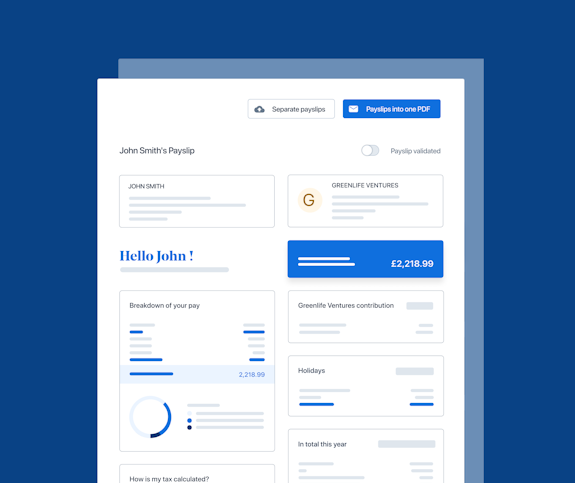- Blog
- |People management
- >Annual leave and absences
- >UK Bank Holidays 2024
What Are The Dates For UK Bank Holidays in 2024?


With a new year comes a brand new chance to make holiday plans for the year ahead.
And as an employer, it's important to keep abreast of public holidays and to factor it into your workforce and team planning efforts. It's also important to understand the ins and outs of bank holiday pay - both how to administer it as an employer, and what to expect as an employee.
But before you start dreaming of white sandy beaches, crystal blue waters, or simply putting your feet up, it's important to know what the dates of UK bank holidays in 2024 actually are.
Our annual leave content is always immensely popular with both employers and employees alike. So we wanted to create something that would be a useful reference point both for those planning workforces and projects, as well as those plotting a getaway or two.
So here it is - the 2024 UK bank holidays that everybody has to look forward to, as well as answers to the questions associated with bank holidays and bank holiday pay specifically.
What's 2024 looking like for UK bank holidays?
There are 8 UK bank holidays in 2024, starting with New Year's Day on 1st January.
Christmas in 2023 is happening on weekdays, so the final two UK bank holidays for 2023 (Christmas Day & Boxing Day) won't be 'in lieu' as they were the previous 2 years, when workers actually got four paid days off rather than two. The same applied to 2023's New Year's Day break, which actually fell on 2nd January, meaning the 1st was a 'bonus' day off.
2023 saw an additional UK bank holiday as part of the King's coronation celebrations on Monday 8th May, but in 2024 we'll revert back to the norm.
Good Friday and Easter Monday fall a little earlier, with those particular 2024 UK bank holidays coming at the end of March and beginning of April (in 2023 they were a week or so later).
Aside from that it's business as usual as far as UK bank holidays go in 2024.
What does this mean for employers?
The important thing to remember about annual leave is that all full-time employees are entitled to the equivalent of 28 days’ annual leave a year.
Many people believe that of the 28 days of annual leave, eight are automatically given for bank holidays. The truth is that there is no statutory entitlement to be paid for UK bank holidays; instead, employers have the right to decide when someone takes their annual leave.
Employees do not have a legal entitlement to paid leave on bank holidays. Any right to time off or extra pay for working on those days is entirely dependent on the terms stipulated in an employment contract.
As a result, many employers choose to remain closed on bank holidays and therefore allocate bank holidays as part of their employees’ annual leave entitlement.
| UK Bank Holidays in 2024 | Day of the week | Date |
|---|---|---|
| New Year’s Day | Monday | 1st January |
| Good Friday | Friday | 29th March |
| Easter Monday | Monday | 1st April |
| Early May Bank Holiday | Monday | 6th May |
| Spring Bank Holiday | Monday | 27th May |
| Summer Bank Holiday | Monday | 26th August |
| Christmas Day | Wednesday | 25th December |
| Boxing Day | Thursday | 26th December |
How is UK bank holiday pay calculated?
Calculating annual leave, and therefore bank holiday pay, is done based on the average number of days worked in a week. Bank holiday pay for part-time workers, or pro rata holiday entitlement, is based on the same principle as entitlement for full-time employees, just adjusted for the amount of the holiday year they’ve worked.
So if you have a worker that works the same amount of hours every week, just part-time, their holiday entitlement would be 5.6 times the days they work in a week, and their bank holiday pay adjusted accordingly.
Zero or irregular hours employees' bank holiday pay is calculated based on average weekly pay received for the last 52 weeks worked.
What about PayFit?
At PayFit, we aim to simplify the lives of both employers and employees, and bank holidays are no different. PayFit is not only an intuitive and easy-to-use payroll software; it also offers features such as leaves and absences management. Both admins and employees have access to their own portals. Employees can make their annual leave requests while also having visibility over their team’s calendar. Admins and managers can then approve or refuse annual leave requests. The leave balance is then automatically updated on the employee space which is reflected on the employee's payslip.


A UK 4-Day Working Week - Thoughts On Labour’s Plan

Running payroll - A Guide For New Businesses

The Alabaster Ruling & Maternity Pay - A Guide For Employers

The End Of Zero Hours Contracts? Implications For Businesses

What is the HM Revenue and Customs Starter Checklist

